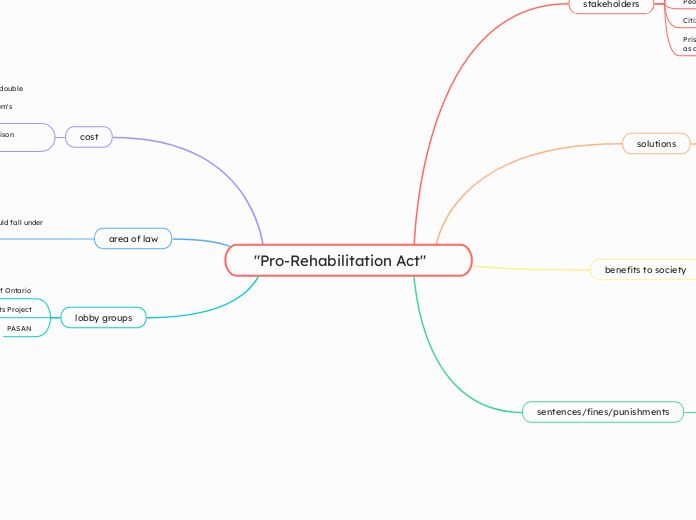"Pro-Rehabilitation Act"
stakeholders
The government (expenditures)
Prisoners
Family of prisoners
Victims of violent offenders
Family of victims
People searching for work
Citizens, after prisoners finish their sentences
Prison faculty, administration, and the institution as a whole
solutions
Provide better quality education & healthcare for prisoners
Buy quality product for cooking and provide
higher salaries for prison educators
Provide more resources for ex-convicts seeking to
re-integrate into society
benefits to society
Reduce rates of recidivism
Help long-term prisoners re-integrate into society with the required skills
Improve the mental health of prisoners
Help prisoners find their role in the world
Benefit the economy by causing an influx of skilled workers
Destigmatize prison
Image of prison changes from that of a criminogenic milieu to one of rehabilitation and improvement
sentences/fines/punishments
Prison institutions not abiding by the Pro-Rehabilitation Act will be fined $750 000 and must show an intent to change infrastructure in compliance with the act or be closed down
cost
$5800 per prisoner in any given facility (double what is being paid right now, which is approximately 1% of the correction system's budget) for education
$200 million to improve the quality of prison healthcare in the province of Canada
area of law
The "Pro-Rehabilitation Act" would fall under constitutional law.
lobby groups
John Howard Society of Ontario
Toronto Prisoner's Rights Project
PASAN
